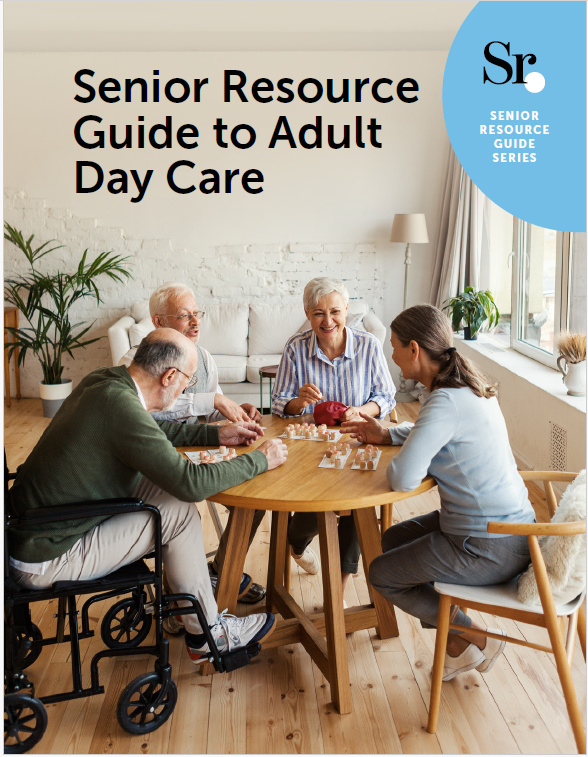Nursing Homes and Skilled Nursing Facilities

When it comes to healthcare services for seniors, nursing homes and skilled nursing facilities (SNFs) are two of the most common options available.
- What's the Difference Between a Skilled Nursing Facility and a Nursing Home?
- Nursing Homes: Everything You Need to Know
- Nursing Home Care and Services
- Who Works in a Nursing Home?
- How Much Do Nursing Homes Cost?
- Skilled Nursing Facilities: Everything You Need to Know
- Skilled Nursing Facility Care
- Who Works at a Skilled Nursing Facility?
- How Much Does a Skilled Nursing Facility Cost?
- Read More About Nursing Homes and Skilled Nursing Facilities
- Listen to Podcasts About Nursing Homes and Skilled Nursing Facilities
What's the Difference Between a Skilled Nursing Facility and a Nursing Home?
Most people tend to use the terms nursing home and skilled nursing facility interchangeably, but they are not quite the same. Understanding the difference between the two can help you make the right choice when it comes to senior care. Let's break it down for you.
Services
Nursing homes offer personal care services to the residents. They provide assistance with activities of daily living, housekeeping services, laundry, and transportation. Nursing homes also organize social activities and provide a safe, comfortable environment for residents.
In contrast, skilled nursing facilities are more intensive in terms of medical services. SNFs provide skilled nursing, physical therapy, occupational therapy, and speech therapy. Patients in the SNF receive 24-hour medical attention. These facilities often also have equipment such as ventilators, feeding tubes, and dialysis machines that allow them to treat complex health conditions.
Length of Stay
Nursing homes are designed to be permanent residences for seniors who need custodial care. Residents in nursing homes may stay there for several years before they pass away or are moved to a hospice. In contrast, skilled nursing facilities are a temporary solution for patients who have recently been hospitalized or require intensive medical or rehabilitative care. The length of stay in an SNF depends on the extent of the medical condition and the treatment required.
Nursing Homes: Everything You Need to Know

A nursing home is a living option for seniors who do not need a hospital but require a higher level of care or medical attention than can be provided at home or in assisted living. Nursing homes provide structured schedules, meals, and around-the-clock medical treatment. Residents have care plans and receive regular health assessments. Nursing homes are regulated at both federal and state levels.
Nursing Home Care and Services

When seniors choose to reside in nursing homes, they can expect to receive comprehensive care and support. These facilities provide full-time health and personal care to ensure the well-being of their residents. Here are some common types of care that nursing homes offer:
- Skilled Nursing - Nursing homes have skilled nursing staff available to provide medical care and assistance with complex health needs. This can include wound care, medication administration, monitoring vital signs, and managing chronic conditions.
- Custodial Care - Nursing homes also offer custodial care, which focuses on assisting with activities of daily living (ADLs). This can involve help with bathing, dressing, grooming, toileting, and eating.
- Medication Management - Nursing homes have trained professionals who are responsible for administering and managing medications for residents. This ensures that residents receive their prescribed medicines in a safe and timely manner.
- Therapies - Many nursing homes provide various therapies to enhance the overall well-being of their residents. These may include physical therapy to improve mobility and strength, occupational therapy to enhance daily life skills, and speech therapy to address communication and swallowing difficulties.
- 24-Hour Emergency Care - Nursing homes have round-the-clock emergency care available to handle any urgent medical situations that may arise. This provides peace of mind to both residents and their families.
In terms of living arrangements, nursing homes typically have shared living quarters, eating spaces, and activity centers. However, private quarters are often available at an additional cost for those who prefer more privacy.
To promote socialization and engagement, nursing homes offer a range of activities. Game times, arts and crafts sessions, and physical fitness classes are some examples of the standard activities that residents can enjoy. These activities not only provide entertainment but also foster social connections and mental stimulation.
It's important to note that each nursing home may have its own unique offerings and amenities. Seniors and their families should carefully consider their specific needs and preferences when selecting a nursing home that aligns with their desired lifestyle.
Who Works in a Nursing Home?

Nursing home employees often include a variety of custodial, medical, and other support staff. Here is a breakdown of who you may find working at a nursing home:
- Administrators - An administrator manages the daily operations of their facility, ensuring that accommodations, staff, and state regulations are maintained safely and economically. They work directly with medical directors and nurses to ensure properly managed care plans.
- Medical Directors - Medical directors are usually trained physicians who coordinate medical care for patients. They work directly with administrators, nurses, and other staff, to ensure that care plans are properly implemented.
- Nurses - Registered nurses (RNs) and licensed practical nurses (LPNs) have duties that include, but are not limited to, health assessment administration, coordinating and providing patient care, medication management, wound care, and IV care. Federal law requires at least one RN on duty for 8 hours a day and either an RN or LPN on duty for 24 hours a day. Nursing education and licensing requirements vary by type. Most commonly, RNs require at least an associate’s degree, while LPNs necessitate a postsecondary program.
- Physical Therapists - A physical therapist (PT) is a specialist that treats patients who are injured or ill with the objective of improving movement and/or managing pain. PTs consult with patients and other members of their medical team to provide support as devised by care plans.
- Food Service Staff - Food service staff may have duties ranging from meal preparation to keeping the kitchen and eating spaces clean and compliant with any state regulations.
- Dieticians - Federal law requires that nursing homes employ at least one dietician. Dieticians work directly with food service staff and nurses to plan and implement dietary programs for residents.
- Personal Care Assistants - A Personal Care Assistant (PCA) is a staff member who helps patients with everyday needs such as bathing, eating, grooming, dressing, and toileting. PCA certification and licensing requirements vary by state and facility.
How Much Do Nursing Homes Cost?

According to a report by Consumer Affairs, the national average cost of nursing home care is between $7,500 and $9,000 per month. Residents have a myriad of payment options to choose from including self-payment, long-term care insurance, VA benefits, Medicaid, and some life insurance policies. It is important to note that Medicare does not cover long-term care.
Skilled Nursing Facilities: Everything You Need to Know

A skilled nursing facility (SNF) is a residential establishment for short-term medically necessary services. Residents receive 24-hour care from skilled nursing professionals, usually after a recent injury or illness. Residents may no longer require hospital care but might need medical management and monitoring, rehabilitation, or therapy. SNFs are licensed by the state’s Department of Health Services, but must also meet federal requirements “to receive payment under Medicare or Medicaid programs.”
Skilled Nursing Facility Care

SNFs provide care to their residents for various needs, usually post-hospitalization. Facilities provide custodial care such as bathing, dressing, and help eating, as well as skilled nursing. Skilled nursing is defined as any type of medical care or treatment that can only be done by a licensed nurse. This includes, but is not limited to, wound care, IV therapy, and rehabilitation, such as physical or occupational therapy.
Who Works at a Skilled Nursing Facility?

In a skilled nursing facility, custodial staff commonly includes housekeeping, food service, and personal care. Medical staff varies depending on the establishment but usually features a team of nurses, therapists, and medical directors. Here is a breakdown of who you may find working at a skilled nursing facility:
- Nurses - Registered nurses (RNs) and licensed practical nurses (LPNs) have more than a few jobs in a skilled nursing facility. Duties may include, health assessment administration, coordinating and providing patient care, medication management, wound care, and IV care. Nursing education and licensing requirements vary by type. Most commonly, RNs require at least an associate’s degree, while LPNs necessitate a postsecondary program.
- Speech-Language Pathologists - Speech-language pathologists are vital to SNFs, as they provide assessment and treatment for patients who have difficulty with verbal communication or swallowing. In seniors, these types of health challenges are often the result of dementia, stroke, or brain injury.
- Audiologists - An audiologist is a doctor who treats ear-related issues including a patient’s hearing or balance. An audiologist works directly with patients and nursing staff and may prescribe certain therapies and hearing aids.
- Personal Care Assistants - A Personal Care Assistant (PCA) is a staff member who helps patients with everyday needs such as bathing, eating, grooming, dressing, and toileting. PCA certification and licensing requirements vary by state and facility.
- Food Service Staff - Food service staff may have duties ranging from meal preparation to keeping the kitchen and eating spaces clean and compliant with any state regulations.
- Administrators - An administrator manages the daily operations of their facility, ensuring that accommodations, staff, and state regulations are maintained safely and economically. They work directly with medical directors and nurses to ensure properly managed care plans.
- Medical Directors - Medical directors are usually trained physicians who coordinate medical care for patients. They work directly with administrators, nurses, and other staff, to ensure that care plans are properly implemented.
How Much Does a Skilled Nursing Facility Cost?

Skilled nursing facilities cost around $260 per day. Many health insurance providers will pay portions of care received in a skilled nursing facility, depending on your coverage. Medicare Part A will cover care in many circumstances, for instance, if SNF care is immediately followed by a qualifying hospital stay and a doctor recommends such additional care. Supplemental health insurance or veteran’s benefits are also potential payment help options.
Read More About Nursing Homes and Skilled Nursing Facilities
Listen to Podcasts About Nursing Homes and Skilled Nursing Facilities
Suggest a Nursing Home or Skilled Nursing Facility
Do you know of any Nursing Homes or Skilled Nursing Facilities that are not in our database and should be? If so, please add a listing.
Add a Nursing Home or Skilled Nursing FacilityFind Nursing Homes Near Me:
- Alabama
- Alaska
- Arizona
- Arkansas
- California
- Colorado
- Connecticut
- Delaware
- District of Columbia
- Florida
- Georgia
- Hawaii
- Idaho
- Illinois
- Indiana
- Iowa
- Kansas
- Kentucky
- Louisiana
- Maine
- Maryland
- Massachusetts
- Michigan
- Minnesota
- Mississippi
- Missouri
- Montana
- Nebraska
- Nevada
- New Hampshire
- New Jersey
- New Mexico
- New York
- North Carolina
- North Dakota
- Ohio
- Oklahoma
- Oregon
- Pennsylvania
- Rhode Island
- South Carolina
- South Dakota
- Tennessee
- Texas
- Utah
- Vermont
- Virginia
- Washington
- West Virginia
- Wisconsin
- Wyoming








